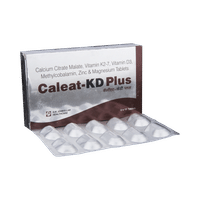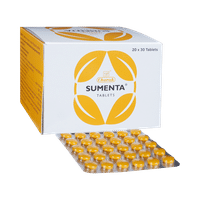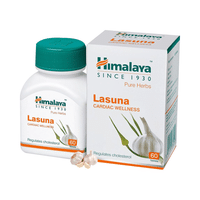Rs.127for 1 strip(s) (15 capsules each)
Available in other variants
food interaction for Ecosprin Gold
alcohol interaction for Ecosprin Gold
pregnancy interaction for Ecosprin Gold
lactation interaction for Ecosprin Gold
food
alcohol
pregnancy
lactation
Ecosprin Gold 10 Capsule is to be taken with food.
Taking it with food helps to avoid stomach upset.
None
Taking it with food helps to avoid stomach upset.
None
CAUTION
It is unsafe to consume alcohol with Ecosprin Gold 10 Capsule.
UNSAFE
Ecosprin Gold 10 Capsule is highly unsafe to use during pregnancy. Seek your doctor's advice as studies on pregnant women and animals have shown significant harmful effects to the developing baby.
UNSAFE
Ecosprin Gold 10 Capsule is probably unsafe to use during breastfeeding. Limited human data suggests that the drug may pass into the breastmilk and harm the baby.
CONSULT YOUR DOCTOR
SALT INFORMATION FOR Ecosprin Gold
Aspirin(75mg)
Uses
Aspirin is used for Angina (heart-related chest pain), heart attack and Stroke. It decreases the chances of having another heart attack or stroke from a disease related to your heart or blood vessels.
How it works
Aspirin is a non-steroidal anti-inflammatory drug (NSAID) with anti-platelet action. It works by preventing platelets from sticking together which decreases the formation of harmful blood clots. This lowers the chance of heart attack or stroke.
Common side effects
Increased bleeding tendency, Nausea, Vomiting, Angioedema (swelling of deeper layers of skin), Gastrointestinal bleeding, Low blood platelets, Dyspepsia, Inflammation of the nose, Shortness of breath, Red spots or bumps, Agranulocytosis (deficiency of granulocytes in the blood), Aplastic anemia, Allergic edema, Anaphylactic reaction, Intracranial bleeding, Hemorrhagic vasculitis, Bronchospasm, Asthma attack, Menorrhagia (heavy menstrual bleeding), Stevens-Johnson syndrome, Lyell’s syndrome, Purpura, Erythema nodosum, Erythema multiforme
Atorvastatin(10mg)
Uses
Atorvastatin is used in the treatment of high cholesterol and high triglycerides.
How it works
Atorvastatin is a lipid-lowering medication (statin). It works by blocking an enzyme (HMG-CoA-reductase) that is required in the body to make cholesterol. It thus lowers "bad" cholesterol (LDL) and triglycerides, raising the level of "good" cholesterol (HDL).
Common side effects
Increased glucose level in blood, Indigestion, Diarrhea, Fever, Increased creatine phosphokinase (CPK) level in blood, Joint pain, Nasopharyngitis (inflammation of the throat and nasal passages), Nausea, Pain in extremities, Urinary tract infection, Abnormal liver function tests, General discomfort, Hepatitis (viral infection of liver), Muscle damage, Rhabdomyolysis, Immune-mediated necrotizing myopathy
Clopidogrel(75mg)
Uses
Clopidogrel is used for heart attack, peripheral vascular disease and prevention of heart attack and stroke. It decreases the chances of having another heart attack or stroke in people at high risk of heart disease.
How it works
Clopidogrel is an antiplatelet medication. It works by preventing platelets from sticking together, thereby decreasing the formation of harmful blood clots. This lowers the chance of heart attack or stroke.
Common side effects
Abdominal pain, Stomach inflammation, Constipation, Skin rash, Blood in urine, Thrombotic thrombocytopenic purpura, Decreased blood cells (red cells, white cells, and platelets), Agranulocytosis (deficiency of granulocytes in the blood), Acquired hemophilia A, Vasculitis, Hypotension (low blood pressure), Aplastic anemia, Hypoglycemia (low blood glucose level), Hemorrhage, Vomiting, Nausea, Headache, Bruise, Dizziness, Diarrhea, Hematoma, Nosebleeds, Gastrointestinal bleeding, Dyspepsia, Low blood platelets, Intracranial bleeding, Stomach ulcer, Duodenal ulcer, Anaphylactic reaction
SUBSTITUTES FOR Ecosprin Gold
71 Substitutes
71 Substitutes
Sorted By
 Rs. 105save 19% more per Capsule
Rs. 105save 19% more per Capsule Rs. 56.40save 35% more per Capsule
Rs. 56.40save 35% more per Capsule Rs. 95pay 9% more per Capsule
Rs. 95pay 9% more per Capsule Rs. 119.79save 10% more per Capsule
Rs. 119.79save 10% more per Capsule Rs. 68save 21% more per Capsule
Rs. 68save 21% more per Capsule
Expert advice FOR Ecosprin Gold
- Aspirin helps prevent future heart attack and clot-related (ischemic) stroke.
- It is generally well-tolerated with minimum side effects.
- Take it with food to avoid an upset stomach.
- It may make you bleed more easily. Be careful while shaving, using sharp objects, or cutting fingernails or toenails.
- Inform your doctor if you notice blood in your vomit or have black/tarry stools.
- Stop taking Aspirin and tell your doctor if you have ringing in your ears, unusual bleeding, or nausea or vomiting that does not go away.
Frequently asked questions FOR Ecosprin Gold
Aspirin
Q. How long should I take Aspirin for?
You will need to take Aspirin for the rest of your life unless stopped by your doctor.
Q. When will I feel better after taking Aspirin?
Aspirin is known to reduce the risk of heart attack and stroke. You may not feel any difference after taking Aspirin. Keep taking it as prescribed by your doctor to keep getting the benefits.
Q. How long does Aspirin take to clear from the body?
It takes around 10 days for Aspirin to get cleared from the body after completely stopping this medicine.
Atorvastatin
Q. What should I know about high cholesterol?
Cholesterol is a type of fat present in your blood. Total cholesterol is determined by the total amount of LDL and HDL cholesterol in the body. LDL cholesterol is called “bad” cholesterol. Bad cholesterol can build up in the wall of your blood vessels and slow or obstruct blood flow to your heart, brain, and other organs. This can cause heart disease and stroke. HDL cholesterol is called “good” cholesterol as it prevents the bad cholesterol from building up in the blood vessels. High levels of triglycerides are also harmful to you.
Q. Is Atorvastatin used for lowering cholesterol?
Atorvastatin belongs to a group of medicines known as statins, which lowers the level of lipids or fats. Atorvastatin is used to lower lipids known as cholesterol and triglycerides in the blood when a low-fat diet and lifestyle changes fail to lower the levels of cholesterol and triglycerides. If you are at an increased risk of heart disease, Atorvastatin can also be used to reduce such risk even if your cholesterol levels are normal. You should maintain a standard cholesterol-lowering diet during treatment.
Q. Will taking Atorvastatin lead to an increase in my risk of diabetes?
If you are at high risk of developing type 2 diabetes, taking Atorvastatin may increase this risk slightly. This is because Atorvastatin can raise your blood sugar a little. If you already have type 2 diabetes, your doctor may advise monitoring your blood sugar levels more closely for the first few months. Tell your doctor if you find it harder to control your blood sugar.
Clopidogrel
Q. What is Clopidogrel used for?
Clopidogrel is used to prevent formation of blood clots, thus reducing the risk of heart attacks or stroke. It facilitates smooth circulation of blood in the body by reducing the ability of the platelets to stick together, that could otherwise lead to formation of harmful clots in hardened blood vessels.
Q. Is Clopidogrel a blood thinner?
Yes, Clopidogrel is an antiplatelet medicine which is also known as a blood thinner. It makes your blood flow more easily through your blood vessels and prevents formation of harmful blood clots. This lowers your chances of heart attack or stroke.
Q. When should you take Clopidogrel?
You should take Clopidogrel exactly as prescribed by the doctor. You can take it with or without food, at any time of the day. However, it is important to take it regularly at the same time each day for best results. This will also help you to remember to take it daily.























